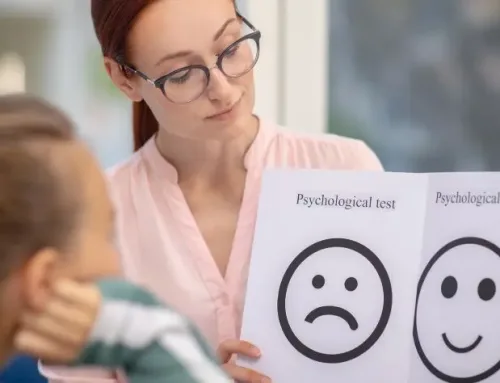What Can You Do with a PsyD: Career Paths and Opportunities

What can you do with a PsyD? More than most people think. From working in private practice to leading mental health initiatives in hospitals, schools, or corporate settings, a Doctor of Psychology degree opens doors far beyond the traditional therapist’s office.
Whether you’re drawn to clinical work, consultation, or leadership in behavioral health, a PsyD gives you the hands-on training and expertise to make a real impact. The field is broad, the demand is growing, and the possibilities are worth exploring.
Clinical Career Paths for PsyD Graduates
Clinical careers are where PsyD graduates often find their stride, applying their skills in direct, impactful ways. Whether you’re passionate about therapy, fascinated by brain function, or drawn to the intersection of physical and mental health, there’s a path that fits your vision.
Here’s a look at just a few of the clinical roles PsyD grads are well-prepared to step into:
1. Licensed Clinical Psychologist
If you’re wondering where most PsyD graduates land, this is it. Becoming a licensed clinical psychologist is a direct and rewarding path, one that puts your training into daily practice helping individuals navigate challenges, heal, and grow. It’s a career that demands empathy, critical thinking, and a deep commitment to ethical care.
Licensed clinical psychologists take on a wide range of responsibilities and can work with diverse populations in various settings. The flexibility and depth of this role are part of what makes it so appealing.
Typical responsibilities include:
- Providing individual, group, or family therapy
- Conducting psychological assessments and testing
- Diagnosing mental health disorders
- Developing and monitoring treatment plans
Areas of specialization:
- Child and adolescent psychology
- Trauma and PTSD
- Health psychology
- Adult clinical work
- Couples and family therapy
2. Neuropsychologist
If you’re fascinated by how the brain works and want to dig deeper into cognitive and neurological functioning, neuropsychology might be a good option. This path typically involves advanced training and a formal specialization, but it opens up a powerful niche within clinical psychology. Neuropsychologists often assess patients with brain injuries, developmental conditions, or neurological disorders.
These professionals are trusted partners in healthcare, helping medical teams understand how brain-based issues affect behavior, learning, and daily function. You’ll find neuropsychologists working closely with patients and families as they navigate everything from stroke recovery to traumatic brain injury.
Hospitals, rehabilitation centers, and veterans’ health settings are among the most common environments for this career.
3. Health Psychologist
The relationship between mental and physical health is more important than ever—and health psychologists are leading that conversation. This career path centers on the mind-body connection, addressing how behavior, emotions, and environment impact physical health outcomes.
As a health psychologist, you might work with individuals managing chronic illnesses like diabetes, cancer, or heart disease. Your role could involve helping patients improve lifestyle habits, cope with stress, and build resilience during recovery. It’s a collaborative, integrative role often embedded in medical teams and primary care systems.
This path suits those who want to bridge clinical psychology with healthcare delivery, working in hospitals, clinics, or academic medical centers to drive better outcomes through behavioral science.
Our PsyD Program: Rooted in Purpose, Designed for Impact
At Southern California University of Health Sciences (SCUHS) our Doctor of Psychology (PsyD) in Psychodynamic Psychology program for people who want to lead, serve, and create lasting change. Our approach blends clinical depth with hands-on experience, giving you the tools to grow as a confident, capable psychologist. Whether you see yourself in private practice, teaching, consulting, or shaping systems of care, we’re here to help you get there.
We focus on real-world readiness. You’ll train alongside experienced faculty, connect with diverse communities, and develop the practical skills today’s careers demand. Our model emphasizes collaboration, compassion, and a deep understanding of the whole person, aligning with where the field is headed and what the world needs.
Ready to take the next step? Apply now or reach out at admissions@scuhs.edu—we’re here to answer your questions.
Emerging & Specialized Clinical Roles
Clinical psychology is expanding, and so are the opportunities for those ready to lead. With a PsyD, you can step into specialized roles that reflect where healthcare, education, and crisis response are headed. These careers allow you to meet specific populations where they are—whether that’s in the courtroom, on a military base, in a school district, or right alongside physicians.
4. Integrated Behavioral Health Provider
Whole-person care is gaining traction, and integrated behavioral health providers are at the heart of it. In this role, you’ll work side-by-side with medical professionals to support patients’ mental and emotional well-being, right in the same care setting where they’re receiving physical healthcare. It’s a collaborative, fast-paced environment where communication and flexibility are key.
Integrated behavioral health is especially common in community health centers and federally qualified health centers (FQHCs), where access to care is vital. PsyD graduates who thrive here are often team players who want to connect mental health with broader systems of care.
Common work settings:
- Community health centers
- Integrated primary care clinics
- Federally Qualified Health Centers (FQHCs)
Key focus areas:
- Brief interventions
- Real-time mental health support
- Chronic condition management
- Behavioral consultations with medical staff
5. Forensic Psychologist
If you’re interested in the intersection of psychology and the legal system, forensic psychology may be your path. This specialized field involves working with courts, attorneys, and correctional facilities on mental health evaluations, risk assessments, and expert testimony. Forensic psychologists assess things like competency to stand trial, criminal responsibility, and sentencing recommendations.
You’ll need a strong understanding of both psychological theory and legal standards. It’s a unique career that combines clinical expertise with structured protocols and often high-stakes environments. Forensic psychologists work in settings such as court systems, prisons, law enforcement agencies, and private consultancies.
6. School Psychologist (with appropriate credentialing)
Helping students succeed goes far beyond academics. As a school psychologist, you’ll support the mental health, behavior, and learning needs of children and teens. This role typically requires state-specific credentialing beyond your PsyD, but the impact you can have on young lives is significant.
Your day might include conducting assessments, consulting with teachers and parents, leading social-emotional learning initiatives, and supporting crisis interventions. School psychologists often serve as the mental health lead on campus, offering early interventions that can change the trajectory of a student’s life.
This role suits PsyD grads who want to blend clinical work with educational systems—and who value long-term relationships with the students and families they serve.
7. Military or VA Psychologist
Serving those who serve takes skill, dedication, and a deep sense of purpose. Military and VA psychologists work with service members, veterans, and their families on a wide range of challenges—from PTSD and trauma recovery to reintegration into civilian life.
These roles are grounded in clinical care, but they also demand cultural awareness, resilience, and adaptability. You might be embedded with a military unit, providing on-site support, or working in a VA medical center offering therapy and assessment services. Either way, this path allows you to be part of a mission-driven system focused on healing and service.
8. Crisis & Disaster Response Psychologist
When communities face disaster, crisis response psychologists step in to provide urgent psychological support. This specialized role involves working in high-pressure environments where immediate emotional and behavioral care is needed. Whether it’s a natural disaster, mass casualty event, or public health emergency, these psychologists help individuals and communities stabilize and begin recovery.
You may work with organizations like FEMA, the American Red Cross, or local emergency response teams. The role can include everything from trauma debriefing to supporting first responders. It’s a career for those who thrive under pressure and want to be present where help is most needed.
Non-Clinical Career Opportunities with a PsyD
The value of a PsyD doesn’t stop at clinical work. Many graduates apply their expertise in environments that are far from traditional therapy settings, yet just as impactful. These roles span business, education, research, advocacy, and leadership. Whether you’re driven by teaching, strategy, systems, or public influence, there’s a place where your training fits.
1. Organizational/Industrial Consultant
People are the heart of any business—and PsyD graduates bring the tools to help them thrive. In this role, you’ll focus on improving workplace dynamics, supporting leadership development, and optimizing team performance. It’s a powerful way to influence culture, strengthen resilience, and align organizations with psychological best practices.
Common areas of focus:
- Executive coaching and leadership training
- Employee well-being and stress management
- Organizational development
- Team communication and conflict resolution
You’ll often partner with HR leaders, executives, or wellness teams, and your work might include running workshops, conducting assessments, or advising on company-wide strategies.
2. Academic Instructor / Adjunct Faculty
If you love the idea of shaping future psychologists—or simply sharing your knowledge—teaching could be your path. With a PsyD, you can become an instructor at the undergraduate or graduate level, often focusing on applied courses like clinical techniques, ethics, or psychological assessment.
This role offers a chance to stay connected to the field while mentoring students and contributing to academic growth. Many PsyD grads teach part-time as adjuncts, while others pursue more permanent academic appointments or administrative roles within universities.
3. Program Director (Mental Health Clinics, Nonprofits)
Leadership meets mission in this role. Program directors oversee mental health services and community initiatives, often managing teams, budgets, and strategic direction. Whether you’re working in a nonprofit, clinic, or community-based organization, your role is all about building programs that deliver meaningful outcomes.
You’ll likely be involved in hiring, training, designing new services, and measuring success. It’s a great fit for PsyD grads who enjoy leading people, building systems, and being at the center of big-picture thinking.
4. Research Consultant
While PsyD programs aren’t typically research-intensive, many grads find themselves contributing to applied research projects—especially in healthcare, behavioral science, or public policy. As a research consultant, you might collaborate on study design, data analysis, or interpretation of findings for program development or policy change.
This path allows you to stay close to the science of psychology without working in a traditional lab setting. Your clinical insights are valuable in translating research into real-world applications.
5. Author, Speaker, Advocate
Some PsyD professionals turn their voice into their platform. Whether you’re writing books, speaking at conferences, hosting a podcast, or advocating for mental health reform, this path is all about reaching audiences beyond the one-on-one clinical model.
Your training gives you the authority and clarity to speak on complex issues in ways that connect with the public. It’s a career route that blends psychology with communication, and it works well for those with a passion for education, storytelling, or systemic change.
6. Corporate Wellness Specialist
Companies are investing more in the mental health of their employees, and PsyD-trained wellness professionals are leading the charge. As a corporate wellness specialist, you might design and implement programs that boost resilience, reduce burnout, and support emotional well-being in the workplace.
This role can include creating workshops, offering one-on-one coaching, or shaping policies that create healthier, more supportive work cultures. It’s a dynamic environment that rewards creativity, adaptability, and the ability to connect with diverse teams.
Licensure Path: What It Takes to Become a Licensed Psychologist
Education and Training Requirements
To qualify for licensure, you’ll need to complete a PsyD program that is either APA-accredited or approved by your state’s licensing board. This ensures that your education meets professional standards for clinical psychology. Our PsyD program is designed with licensure in mind, meeting requirements for license eligibility as a Clinical Psychologist.
During your training, you’ll complete:
- Practicum: Around 1,000 supervised hours built into your coursework
- Internship: 1,500 to 2,000 hours, usually completed in your final year
- Postdoctoral hours (if required): Around 1,500 hours, depending on your state
Each of these experiences puts you in real clinical settings, working with clients under the supervision of licensed professionals. It’s where you build confidence, refine your skills, and prepare to practice independently.
The Licensing Exam Process
Once your training is complete, you’ll move into the exam phase. The primary requirement across all states is the EPPP (Examination for Professional Practice in Psychology). This national exam tests your knowledge across key domains of psychology and is required for licensure in the U.S. and Canada.
In California, you’ll also need to pass the California Psychology Law and Ethics Examination (CPLEE). This exam focuses on legal standards, scope of practice, and ethical obligations unique to California. Together, these exams ensure you’re fully prepared to practice safely and responsibly in your chosen state.
Continuing Education and Maintenance
Licensure isn’t a one-time event. Psychologists are expected to maintain and grow their skills throughout their careers. Most states (including California) require ongoing continuing education units (CEUs) to renew your license periodically. These can include workshops, online courses, or professional conferences.
Staying licensed means staying engaged—and that’s part of what helps you continue to provide the highest standard of care.
Some Roles Don’t Require Licensure
While licensure is essential for clinical practice, not every PsyD career path calls for it. Roles in teaching, consulting, advocacy, and some areas of research or program leadership often don’t require a license to practice. That flexibility opens even more doors for PsyD graduates who want to explore non-clinical settings or shift their focus over time.
We Prepare You to Get Licensed
At SCUHS, we designed our PsyD program with licensure in mind. From day one, your training is aligned with the requirements to become a licensed clinical psychologist. Our curriculum, faculty mentorship, and clinical experiences all support your path to licensure.
You’ll graduate from SCU with a degree that qualifies you for license eligibility, and the skills, confidence, and preparation to take the next step forward in your career.
Work Environments for PsyD Graduates
Your PsyD opens doors to work environments that match your personality, values, and goals. Some graduates thrive in independent settings, while others gravitate toward team-based care or high-impact community work. With this degree, you’re qualified to practice in places where mental health professionals are trusted and needed, across healthcare, education, justice systems, and more.
Private Practice
If independence and flexibility are high on your list, private practice offers a clear path. PsyD professionals in private practice enjoy full control over their schedules, caseloads, and therapeutic approach. This setting supports long-term relationships with clients and a deep investment in their progress.
Why choose private practice?
- Full autonomy over your practice model
- Flexible hours and location
- Long-term therapeutic relationships
- Opportunities for specialization
This environment is ideal if you want to build something of your own while making a meaningful impact, one client at a time.
Community Mental Health Centers
Community mental health centers are vital touchpoints for individuals and families in need of accessible care. Working in this setting means serving diverse populations, often with limited access to mental health services. It’s high-impact work that calls for cultural humility, resilience, and a deep commitment to service.
As a PsyD professional in a community setting, you may work with underserved youth, immigrants, or individuals facing housing or employment challenges. Your role is both clinical and community-based, and your influence goes far beyond the therapy room.
Hospitals & Medical Centers
In hospitals and medical centers, psychologists are essential members of interdisciplinary teams. This environment is dynamic and fast-paced, with a strong focus on collaboration and whole-person care. PsyD graduates here often work in inpatient psychiatric units, pain clinics, or consult alongside physicians to support patients with complex medical and psychological needs.
This setting is a great match if you’re energized by teamwork and want to be on the front lines of integrated healthcare.
Universities or College Counseling Centers
If you’re drawn to helping young adults manage life transitions, academic stress, and identity development, this setting might feel like home. University and college counseling centers serve students through short-term therapy, group work, and outreach programs.
Working here means supporting mental health at a critical time in life, while also engaging in campus culture and collaboration with academic staff. It’s a strong fit for PsyD grads who want to work with emerging adults in a structured, supportive environment.
Correctional Facilities
Correctional psychology brings a unique mix of clinical care, forensic evaluation, and systems work. In this setting, you’ll work with incarcerated individuals on rehabilitation, crisis management, and mental health stabilization. The work often involves competency evaluations, treatment planning, and behavior management strategies.
This environment calls for strong boundaries, patience, and a commitment to equity. For PsyD professionals interested in justice systems, policy impact, or forensic psychology, this setting offers powerful opportunities to make a difference.
Military Bases or VA Clinics
Working with military personnel and veterans is a highly specialized—and deeply meaningful—career path. PsyD professionals in these settings support service members with trauma recovery, PTSD, reintegration, and relationship challenges. These roles can be based in VA medical centers, military installations, or community-based veteran support programs.
You’ll be part of a structured, mission-driven system, working with individuals who have unique experiences and needs. If you’re motivated by service and resilience, this could be the right environment for you.
Telehealth Platforms
Remote care is here to stay, and telehealth is one of the fastest-growing areas in mental health delivery. PsyD graduates are increasingly providing therapy, assessments, and coaching through secure digital platforms.
Telehealth offers flexibility and access, both for you and your clients. You can work from anywhere while reaching individuals who may face barriers to in-person care. This environment suits clinicians who are tech-savvy, self-directed, and committed to expanding access to high-quality care.
Be Ready Sooner with SCUHS’s Licensure-Focused PsyD Path
At Southern California University of Health Sciences (SCUHS), our Doctor of Psychology (PsyD) in Psychodynamic Psychology program is built for people who are ready to move forward—clinically, professionally, and with purpose. Our 3.3-year streamlined pathway is designed to get you licensed and working faster, without sacrificing the immersive clinical depth that sets exceptional psychologists apart.
From the very beginning, you’re engaging in real clinical work, guided by experts who understand what it means to lead in today’s mental health field.
What You Can Expect from the SCUHS PsyD Program
Our format is built for working professionals.
- Blended learning model with interactive online seminars
- In-person residencies for intensive psychodynamic training
- Flexible structure that accommodates practicing therapists
- Year-round schedule that keeps you on track and progressing
Clinical training begins early and runs deep.
- Technology-enhanced supervision and process groups
- Psychodynamic case conceptualization with Dr. Jens Schmidt
- Clinical immersion aligned with licensure readiness from the start
Psychodynamic Foundation, Integrative Tools
Our curriculum centers on psychodynamic theory, taught in a way that’s culturally relevant, deeply reflective, and clinically practical. You’ll work closely with Dr. Jens Schmidt—an expert in psychodynamic case formulation—through live supervision, process groups, and mentorship that sharpens your insight and clinical presence.
We also integrate approaches like CBT, DBT, narrative therapy, and multicultural models, so you’re equipped with a full range of tools to meet your clients where they are. The result is a grounded, flexible, and versatile clinical identity that evolves with your practice.
Faculty Who’ve Done the Work
Our faculty are clinicians with real-world experience. They bring stories from the field, practical wisdom, and deep mentorship into every class, every consultation, and every case discussion. You’re learning from people who understand what success looks like in practice—because they’ve lived it.
Join a Program That Keeps You Moving Forward
With our accelerated 3.3-year structure, you won’t be waiting five to seven years to finish your training. You’ll stay engaged, focused, and supported from start to finish, with everything aimed at preparing you for licensure and long-term success in the field.
Start Building the Career You’ve Been Working Toward
A PsyD can lead you into private practice, hospitals, universities, corporations, and beyond. Whether you’re drawn to clinical work, organizational consulting, teaching, or emerging specializations, your training will prepare you for roles that are grounded, in demand, and deeply impactful. From psychodynamic foundations to integrative techniques, you’ll graduate with both depth and flexibility.
At SCUHS, we offer a streamlined 3.3-year path to licensure, real clinical immersion, mentorship from practicing psychologists, and a blended format that works for busy lives. Financial aid and scholarships are available to help support your journey. Join a virtual information session, apply today, or reach out at admissions@scuhs.edu—we’re here to help you take the next step.
Frequently Asked Questions
What can you do with a PsyD in education?
You can teach at the college or graduate level, design mental health curricula, lead training programs, or become an academic administrator. Many PsyD holders also supervise clinical trainees or develop continuing education workshops for professionals. If you’re passionate about education and mentorship, this path offers a great mix of impact and flexibility.
Can you work in non-clinical roles with a PsyD?
Absolutely. A PsyD equips you with insights and skills that translate well to education, consulting, organizational leadership, advocacy, wellness coaching, and more. Many grads become instructors, program directors, authors, or workplace consultants. While clinical work is a popular path, the training is broad enough to support a range of non-clinical careers
How long does it typically take to become a licensed psychologist?
Most PsyD graduates take about 5 to 7 years to complete their doctorate and postdoctoral requirements—but at SCUHS, our program is designed to fast-track that process. With a streamlined 3.3-year structure, you’ll complete your coursework and required clinical hours more efficiently. After graduation, you’ll be prepared to take the EPPP exam and fulfill any remaining state-specific steps to become licensed and begin practicing.
What kind of clinical experience will I get at SCUHS?
Clinical immersion starts early in our program. You’ll participate in supervised practicums, live process groups, and psychodynamic case consultations with faculty. You’ll also have access to in-person residencies and technology-supported supervision that mirrors the real work of clinical practice—so you’re gaining hands-on experience that counts from the start.
Are financial aid or scholarships available for the PsyD program?
Yes, we offer financial aid and scholarship opportunities to help support your training. Our admissions team can walk you through available options and help you create a plan that fits your goals and timeline. Affording your education shouldn’t be a barrier to building your future—and we’re here to help make it possible.
Related Posts




